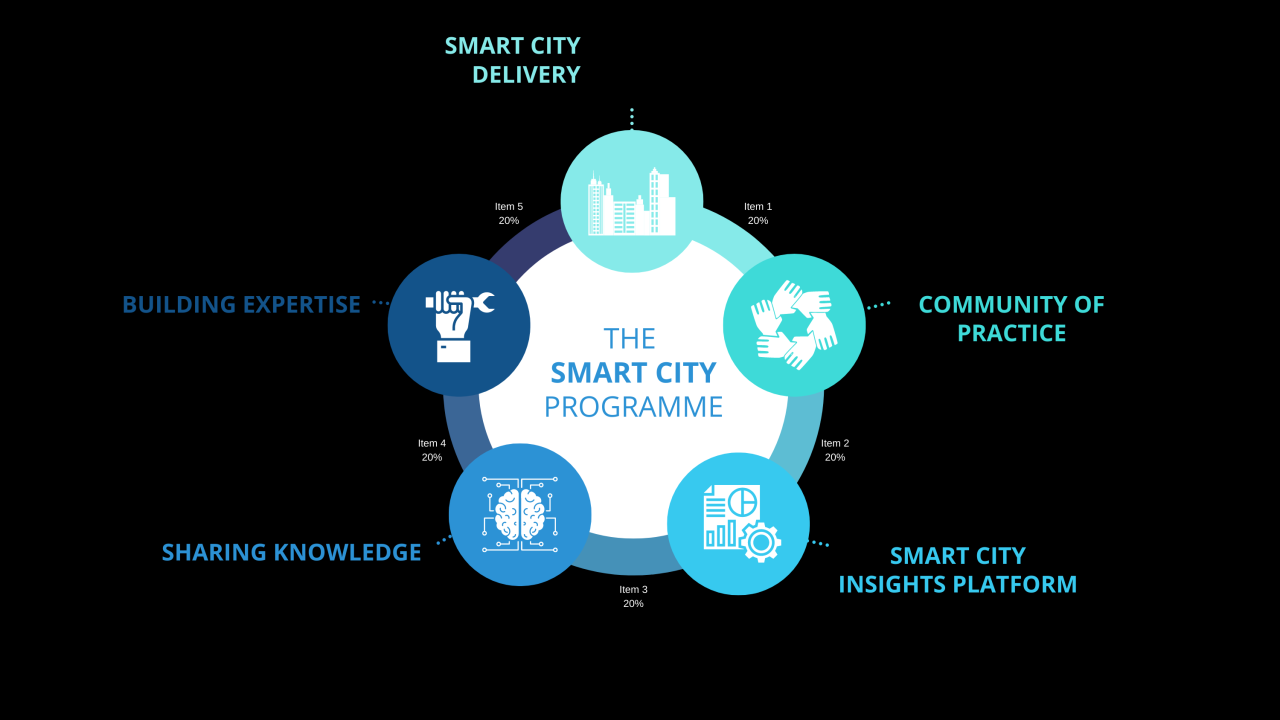
Smart City Initiatives: Transforming Urban Environments
In the 21st century, cities are facing unprecedented challenges, including population growth, environmental degradation, and economic inequality. Smart city initiatives offer a promising solution to these challenges by leveraging technology and data to enhance urban living and foster sustainable development.
Definition of a Smart City
A smart city is an urban area that uses information and communication technologies (ICTs) to improve its efficiency, sustainability, and quality of life for its residents. It integrates data from various sources, such as sensors, cameras, and social media, to create a real-time understanding of urban systems.
Key Elements of Smart City Initiatives
Smart city initiatives typically encompass a range of components, including:
- Smart Governance: Using data and technology to improve transparency, accountability, and citizen engagement.
- Smart Infrastructure: Optimizing energy, water, and waste management systems through sensors and automation.
- Smart Mobility: Enhancing transportation networks with real-time traffic data, intelligent traffic signals, and autonomous vehicles.
- Smart Environment: Monitoring and reducing environmental impact through air quality sensors, energy-efficient buildings, and renewable energy sources.
- Smart Health: Improving access to healthcare, promoting preventive measures, and enhancing emergency response systems.
- Smart Education: Personalizing learning experiences, connecting students to educational resources, and fostering collaboration among institutions.
Benefits of Smart City Initiatives
Smart city initiatives can bring numerous benefits, including:
- Increased efficiency and cost savings: Optimization of urban services can lead to reduced energy consumption, improved traffic flow, and streamlined operations.
- Improved sustainability: Monitoring and reducing environmental impact can contribute to cleaner air, water, and soil, and mitigate climate change.
- Enhanced quality of life: Smart city technologies can create safer, healthier, and more engaging urban environments for residents.
- Economic growth and innovation: Smart city initiatives foster business development, attract investment, and create new jobs in tech-related fields.
Challenges of Smart City Initiatives
While smart city initiatives hold great promise, they also face certain challenges:
- Data privacy and security: Collecting and using vast amounts of data raises concerns about privacy and the potential for misuse.
- Equity and accessibility: Smart city technologies may not be accessible to all residents, exacerbating existing inequalities.
- Cost and affordability: Implementing smart city initiatives can be expensive, and finding sustainable funding sources is crucial.
- Public acceptance and involvement: Gaining public trust and ensuring citizen participation is essential for the success of smart city initiatives.
Conclusion
Smart city initiatives offer a transformative approach to urban development, promising to improve efficiency, sustainability, and quality of life. However, it is crucial to address challenges related to data privacy, equity, cost, and public acceptance to ensure that these initiatives truly benefit all urban residents. As cities continue to grow and evolve, embracing smart city technologies will be essential for creating livable, sustainable, and thriving urban environments for future generations.


